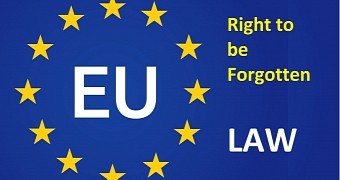Enforcing the “right to be forgotten” ruling of the European Union’s Court of Justice should be done by Google only in EU countries, through the localized versions of its search engine, an advisory council of the company concluded.
The “right to be forgotten” offers the possibility to prevent Google’s search engine from retrieving results for queries based on an individual’s name that may be inadequate, irrelevant or excessive.
The EU ruling is not global
The information targeted by a “right to be forgotten” request does not become extinct, as it continues to be available at the source location, but it would no longer be listed in the results; only the link to the content is removed, not the content itself.
However, delisting the link will not occur if it is deemed that limiting access to it overrides the public interest.
The EU ruling does not have a global effect, so Google discussed the possibility to restrict enforcing it so that laws of other countries around the globe are not infringed.
“The Ruling should be interpreted in light of the rights to privacy and data protection, as well as rights to freedom of expression and access to information,” says a report on the matter published on Friday.
Most users in EU use localized versions of the search engine
By limiting the geographic scope of the information delisting, Google hopes to conform to the Court’s ruling, as well as respect the fundamental rights. As such, the information could be accessed from a different version of the search engine that is not limited by the “right to be forgotten.”
Users outside the US are served a localized version of the search engine, even when typing “google.com” in the web browser’s address bar (adding “/ncr” prevents the automatic redirect). As per information from the company, more than 95% of the queries from European users are initiated from local versions.
Given this data, Google’s advisory council believes that removing the links from the search services in the EU “is the appropriate means to implement the Ruling at this stage.”
Not everybody agrees to Google's implementation
Jimmy Wales, founder of Wikimedia Foundation, has said that he is against a legal situation where commercial companies are forced to judge the fundamental rights of expression and privacy without offering publishers of the affected content the possibility to appeal the decision.
He added that the recommendations to Google were “deeply flawed due to the law itself being deeply flawed.”
Most members of the committee agree with Google’s decision, although some voices expressed a different opinion.
On the other hand, Sabine Leutheusser-Schnarrenberger, former Federal Minister of Justice in Germany, said that the implementation of the ruling should not be limited to EU-domains because, just as the Internet is global, so should be the protection of users’ rights.

 14 DAY TRIAL //
14 DAY TRIAL //